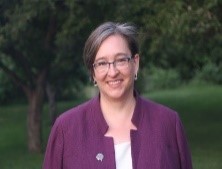The social and economic impacts of COVID-19 have fuelled an extraordinary demand for timely, high-quality data on the health of Canada's people, society and economy. In response to this demand, Statistics Canada has enhanced many of its programs, including its Labour Force Survey (LFS), with the creation of the Labour Force Survey (LFS) Expert Panel.
Comprised of national and international experts from government, academia and non-governmental agencies, the LFS Expert Panel will provide independent advice and guidance on one of Statistics Canada's most important statistical programs.
To ensure that these enhancements result in a deeper and broader understanding of evolving market conditions, the Panel will:
- Provide strategic advice to Statistics Canada on strategies to engage with respondents and encourage participation in the Labour Force Survey;
- Provide expert advice to Statistics Canada on the analysis of Labour Force Survey data; and,
- Act as a liaison on data quality with the broader community of LFS data users.
Listed below, Panel members were selected to reflect a wide-range of expertise and experience, including in the use of LFS data and international experience in the management of similar large-scale statistical programs. With the help of these experts, the LFS will provide even better data and insights to Canadians on evolving labour market conditions in our country.
Internal membership
Chair: Lynn Barr-Telford, Assistant Chief Statistician, Social, Health and Labour Statistics
Secretary: Josée Bégin, Director General, Labour Market, Education and Socioeconomic Well-being Statistics Branch
Agency subject matter: Centre for Labour Market Information, Modern Statistical Methods and Data Science Branch, and Collection and Regional Services Branch.
External membership
John L. Eltinge
John L. Eltinge
Assistant Director, Research and Methodology, United States Census Bureau
John Eltinge is the U.S. Census Bureau Liaison to Statistics Canada's LFS Expert Panel. Mr. Eltinge is the Assistant Director for Research and Methodology at the United States Census Bureau. Before 2016, he served as the Associate Commissioner for Survey Methods Research at the Bureau of Labor Statistics (BLS). Prior to that, he served as a senior mathematical statistician at BLS, and an associate professor with tenure in the Department of Statistics at Texas A&M University. He gave the Roger Herriot Memorial Lecture on Innovation in the Federal Statistical System; and was previously the President of the Washington Statistical Society, the overall chair of the 2003 Joint Statistical Meetings, an associate editor for The American Statistician, and an associate editor for the Applications and Case Studies Section of Journal of the American Statistical Association. In addition, at the 2018 Joint Statistical Meetings, he presented the annual plenary Deming Memorial Lecture, "Improving the Quality and Value of Statistical Information: 14 Questions on Management". A webcast of this lecture is available through: Plenary Session Webcasts
His research interests include the following: data quality; design optimization; integration of multiple data sources; imputation; time series; and small domain estimation.
Mr. Eltinge holds a Ph.D. from the Department of Statistics at Iowa State University; is a fellow of the American Statistical Association; an editor of the Harvard Data Science Review; an associate editor for Journal of Official Statistics and for Survey Methodology Journal; and a member of the Federal Committee on Statistical Methodology.

Howard Ramos
Howard Ramos
Professor, Sociology Department, Western University
Howard Ramos is a professor at Western University as well as the Chair of the Department of Sociology. He investigates issues of social justice and social change and has published four books and over 50 articles and chapters on social movements, human rights, Indigenous issues, environmental advocacy, urban change, economic and tourism development, technology, ethnicity, race, immigration, and equity, diversity and inclusion in higher education. Dr. Ramos has worked with a wide range of advocacy and community organizations and is committed to knowledge translation and evidence-based policy.

Karyne B. Charbonneau
Karyne B. Charbonneau
Director, Prices, Labour and Housing Division, Canadian Economic Analysis Department, Bank of Canada
Karyne B. Charbonneau is the Director of the Canadian Economic Analysis (CEA) Department's Prices, Labour and Housing division. She is primarily responsible for the evolution of the labour market and inflation in the near term.
Ms. Charbonneau joined the Bank of Canada in 2013 as a Senior Economist in the International Economic Analysis Department. Prior to occupying her current role, she was a Policy Advisor in CEA and provided guidance on the impact of trade policy changes on the Canadian economy.
Her research focuses on applied econometrics, international trade and labour economics. She received her PhD in economics from Princeton University.

Thomas Storring
Thomas Storring
Director of Economics and Statistics, Nova Scotia Department of Finance and Treasury Board
Thomas Storring is the Director of Economics and Statistics for the Nova Scotia Department of Finance and Treasury Board. His work focuses on macroeconomic conditions in the Province: how macroeconomics affects the government's fiscal choices and how government decisions affect the economy. He is the focal point for Statistics Canada within the Province of Nova Scotia, and advises Statistics Canada on the Province's needs and priorities for the national statistical system.
Mr. Storring has worked as an economist for over 20 years in provincial finance departments in Ontario and Nova Scotia, as well as for J. D. Irving, Limited. Over the last 10 years, Thomas has taught at both Saint Mary's University and Dalhousie University, lecturing on money and banking, public finance, statistics, principles of economics, as well as global economics for Saint Mary's MBA program. He completed his undergraduate degree in economics at Acadia University and received his Master's in economics at the University of Oxford.

Mikal Skuterud
Mikal Skuterud
Professor, Economics Department, University of Waterloo
Mikal Skuterud is a full-time Professor in the Department of Economics at the University of Waterloo and is affiliated with the Canadian Labour Economics Forum (CLEF) and the Institute of Labor Economics (IZA). He received his Master's degree in Economics from the University of British Columbia and his PhD in Economics from McMaster University.
His research interests include: the labour market integration of immigrants, labour market policies that influence hours of work, and the economics of trade unions. His work has appeared in the American Economic Review, the Journal of Labor Economics, and the Canadian Journal of Economics and has received national media coverage in the New York Times and the Globe and Mail.

Bjorn Jarvis
Bjorn Jarvis
Program Manager, Labour Surveys Branch, Australian Bureau of Statistics
Bjorn Jarvis is the head of the Labour Surveys Branch at the Australian Bureau of Statistics, which comprises the Labour Force Survey and related household surveys, and employer (establishment/business) surveys. In this role, he has overseen innovative transformation of Labour Force Survey methods, analysis and communication. This role included managing the impacts of COVID-19 on Labour Force statistics. Over his 16 years in official statistics, Bjorn has held a broad range of survey and administrative statistics roles in the labour and population statistics programs. He is a highly regarded survey statistician and communicator, with deep connections to the labour statistics user community in Australia.

Angella MacEwen
Angella MacEwen
Senior Economist, Canadian Union of Public Employees, Broadbent Institute
Angella MacEwen is a Senior Economist at the Canadian Union of Public Employees, a policy fellow with the Broadbent Institute and a member of the National Stakeholder Advisory Panel (NSAP) at the Labour Market Information Council (LMIC). Her primary focus is understanding precarity and inequality in the Canadian labour market and evaluating policy solutions proposed for these issues. She also studies the impacts of Canadian economic and social policy on workers, especially climate policy and international trade and investment treaties. Ms. MacEwen writes a quarterly publication, Economy at Work, which aims to communicate current economic issues to a broad audience. She holds an MA in Economics from Dalhousie University.
